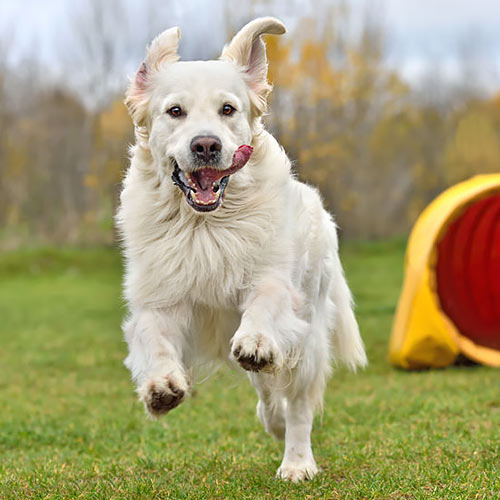One of the prerequisites of a personal protection dog is confidence. If/when this dog’s services are needed, it will be during an extremely stressful situation. Personal assaults and home intrusions are very stressful indeed; for the victim, the aggressor, and the dog. If dogs are to be successful in preventing or averting these types of situations, he/she will have to be able to handle pressure on a large scale.
When it comes to confidence, dogs either have it or they don’t. It cannot be trained into them. If they possess confidence, it can be built upon and brought to higher levels. Confidence (and the lack thereof) is largely genetic. It is important to choose a dog from a line that produces confident working dogs. You may get lucky otherwise, but consider that you will be investing much money, time, and effort in producing a protection dog. It just isn’t worth it to chance a mediocre dog. After all, he/she may be called upon to save your life some day.
We often hear hopeful pet owners who want their dog trained in protection:
- He’s just acting timid because he’s in a new place.
- Normally she has plenty of drive. It must be because she’s not used to you.
- My dog is shy but I want you to train him to be confident.
If a dog is not secure in a new situation or around strange people, he’ll never be able to retain his composure in the event of an attack on your person or his person. He will tuck tail and leave you to fend for yourself.
Socialization can go a long way in producing a confident dog. Many people make the mistake of not socializing their puppy because “I’ve heard a socialized dog will not make a good protector” or similar nonsense. Socialization is needed for well-rounded puppies and adults. Furthermore, they need to learn what is normal so they will have better skills in detecting what is abnormal and alert you to the same.
Socialization by itself will never overcome bad nerves and poor breeding. So be sure to select a dog from confident parents who have a solid working background. Never buy a working dog whose parents are shy. Your pup will either be shy through genetics and/or learn timid behavior from the parents, especially momma. Also, the general rule is…a pup who is shy at eight weeks will also be shy at eight months. This is something they do not outgrow.
Furthermore, a confident pup is usually a dominant pup. A dominant pup is the mentally strongest. He has figured out how to get to the milk and stay there. She has learned how to control her littermates. This is the kind of the dog that will also look a bad guy in the eye and say, “Bring it on, bad boy! I’m ready for you.”
You may disagree with some of these statements. However, let me caution you against choosing an inferior pup/dog. Those who truly know about working dogs – and protection dogs in particular – know that this article is right on. Let me spare you some heartache and wallet-ache by sharing this advice.
If you have a dog you think will make a protection dog, contact us to set up a training appointment. We’d be glad to discuss your goals and formulate a plan to train your dog to the highest level of his/her capacity.

